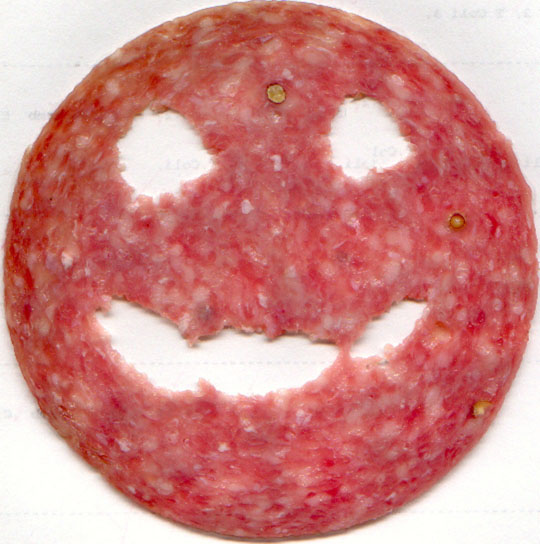The Washington Post reports in tomorrow’s edition that federal officials say 225 people in 44 states and the District of Columbia are thought to have been  sickened by Salmonella in imported black pepper used in the preparation of salami and other types of Italian sausage made by a Rhode Island company.
sickened by Salmonella in imported black pepper used in the preparation of salami and other types of Italian sausage made by a Rhode Island company.
Daniele International recalled 1.2 million pounds of ready-to-eat salami on Jan. 22, after state health officials and the Centers for Disease Control and Prevention linked the outbreak to the company’s products. Daniele expanded the recall on Feb. 4 to include 23,754 additional pounds of salami products. Of those who fell ill, an estimated 26 percent have been hospitalized, officials said. No deaths have been reported. Victims of the outbreak range in age up to 93 years old, with a median age of 39. More than half, or 53 percent, have been male.
This is the second time in less than a year that an outbreak of Salmonella illness has been linked to pepper. Last March, 42 people fell ill after eating tainted white and black pepper sold by Union International Food of California.
The salami, sopressata and other products were packaged under Daniele as well as the Boar’s Head and Black Bear of the Black Woods brands and were sold by several national chains, including Costco, Walmart and online through Amazon.com.
The outbreak began in July and is ongoing. Because the product has a shelf life of one year, federal health officials are concerned that the products remains tucked away in home freezers and pantry shelves.
 Last month, officials at the Rhode Island Department of Health said they thought the contamination was caused by tainted black pepper that was used to coat the salami. Tests showed that the same strain of Salmonella involved in the outbreak was present in two open containers of black pepper at Daniele’s plant in Burrillville, R.I.
Last month, officials at the Rhode Island Department of Health said they thought the contamination was caused by tainted black pepper that was used to coat the salami. Tests showed that the same strain of Salmonella involved in the outbreak was present in two open containers of black pepper at Daniele’s plant in Burrillville, R.I.
State officials said Daniele used two suppliers, Mincing Oversees Spice and Wholesome Spices, which both bought imported black pepper. Samples of pepper from both distributors tested positive for Salmonella, according to state health officials.
"This outbreak only underscores the importance of closely monitoring food that is imported from other countries as they may not have the same food safety standards as we do," David R. Gifford, the state’s director of health, said in a statement.
While the Department of Agriculture regulates salami, the Food and Drug Administration oversees black pepper and other food additives. An FDA spokesman said the agency does not know where the pepper originated and that its joint investigation with USDA continues.
Daniele, which has suspended salami production, said in a statement it has changed its spice suppliers and will now use only irradiated pepper, which undergoes a process designed to kill bacteria.
A list of the recalled products can be found at www.fsis.usda.gov/News_&_Events/Recall_006_2010_Release/index.asp
